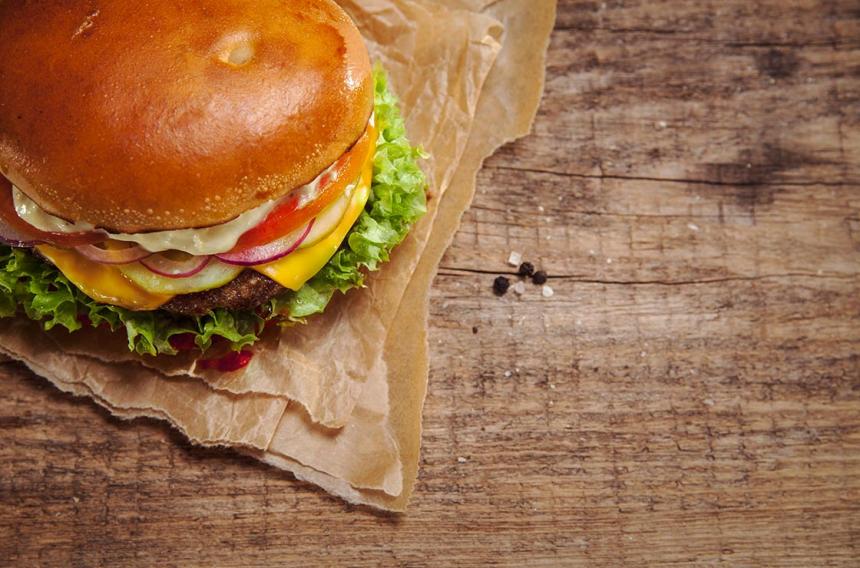Craving a Cheeseburger? Meatless Burgers May Not Be a Healthier Option

Veggie burgers have been on the market for years. But when Burger King added the Impossible Burger to their menu, vegetarians and folks trying to limit their red meat intake might have thought they found heaven on Earth.
Food manufacturers may have figured out how to improve the taste of meatless burgers, but what about the nutrition? Are plant-based burgers, which are highly processed, healthier than traditional hamburgers?
Meatless Burger Ingredients
Let’s start with the Impossible Burger. Leading ingredients include water, soy-protein concentrate, coconut oil, sunflower oil and natural flavors. Leghemoglobin is used to color the patty red and make it “bleed.”
Beyond Burgers, sold at supermarkets and McDonald’s, are mostly water, pea protein isolate, expeller-pressed canola oil and refined coconut oil. Beet extract turns the burger red.
Supermarket brand veggie burgers may not compare in taste and texture to the Impossible Burger or Beyond Burger, but let's throw them into the mix, too. Common ingredients include soy protein, black beans, peas, mung beans, mushrooms, chestnuts, legumes, rice (or quinoa) and various vegetables. Some brands also use some unpronounceable processed ingredients, which usually add little or no nutritional value.
What is Soy Protein?
Soy protein is made from soybeans that have been defatted and converted into soybean flakes that are then washed, dehydrated and converted into a powder. Soy protein has very little fat and no cholesterol, so it’s often added to meat and dairy alternative foods as a source of high-quality protein.
Most plant-based proteins are incomplete (or lower quality). However, soy is complete protein; it has a substantial amount of all nine essential amino acids (the building blocks of protein) that your body cannot create. In terms of protein, it can be categorized with foods such as eggs, yogurt, milk, red meat, poultry and fish. Yet, studies have found that soy protein is not as effective as whey protein for building muscle.
However, soy contains phytates – antioxidants found in some plant-based foods. Phytates can bind to minerals (iron, zinc, manganese and calcium), lowering absorption. If you’re eating a balanced diet that includes plenty of minerals, it shouldn’t be a problem. However, vegetarians who consume a lot of wheat bran but not enough vegetables can experience mineral deficiencies.
More research is needed, but some experts believe too much soy can disrupt thyroid function. And the high phytoestrogens content of soy may upset the hormonal balance.
What is Pea Protein?
Pea protein is a supplement derived from yellow peas. It’s high quality, heart healthy, rich in iron, helps build muscle and works well with many dietary special needs. But pea protein is also low in fiber and high in sodium.
Added Nutrients
Impossible Burgers fortify their patties with nutrients found in beef, like vitamin B12 and zinc. This is a big plus for vegetarians who often struggle getting these nutrients into their diet. But your body doesn’t regulate the absorption of fortified nutrients the same way it does with nutrients found in food. Beyond Burgers and some supermarket brand veggie burgers also are fortified but reportedly not to the extent of Impossible Burgers. Black bean burgers are a substantial source of natural zinc and iron, but don’t have nearly the amount hamburgers do.
Saturated Fat
American Heart Association guidelines recommend limiting your intake of saturated fat to 5 percent to 6 percent of overall calories. That means that you shouldn’t consume more than 120 calories in saturated fat on a 2,000-calorie-a-day diet. Meatless burgers may seem like a logical option to reduce saturated fat intake, considering a typical hamburger has more than 50 calories of saturated fat. But when you compare the fat grams of hamburgers to their meatless counterparts, there’s not a huge difference — the Impossible Burger actually has more saturated fat. That’s probably because meatless burgers use high fat oils. Here are a few comparisons:
- Hamburger (85 percent lean ground beef) - Total fat: 17 grams; saturated fat: 6 grams
- Sunshine Black bean burger - Total fat: 16 grams; saturated fat: 1.5 grams
- Impossible Burger – Total fat: 14 grams; saturated fat: 8 grams
- Beyond Burger – Total fat: 18 grams; saturated fat: 6 grams
- MorningStar Farms Grillers – Total fat: 6 grams; saturated fat: 1 gram
- Dr. Praeger’s All American Veggie Burgers – Total fat: 11 grams; saturated fat 2 grams
Salty Burgers
Meatless burgers may also have more of another ingredient: salt. For example, the impossible burger has 370 mg of sodium. Beyond Burger has 390. That’s a lot more salt than a typical 85 percent lean ground beef burger, which has just 80 mg. The American Heart Association recommends no more than 2,300 mg a day; 1,500 mg per day for most adults is ideal.
Bottom Line
If you’re curbing your intake of red meat out of concern for animal rights or environmental reasons, these substitutes might fit the bill. But from a nutritional standpoint, they shouldn’t be a staple in your diet.
Want to understand more about the foods you should be eating? Talk to your doctor. If you need a physician, consider partnering with MDVIP. MDVIP doctors have the time to work with you to help you develop a personalized wellness program that includes nutrition. Find a physician near you and begin your partnership in health »


